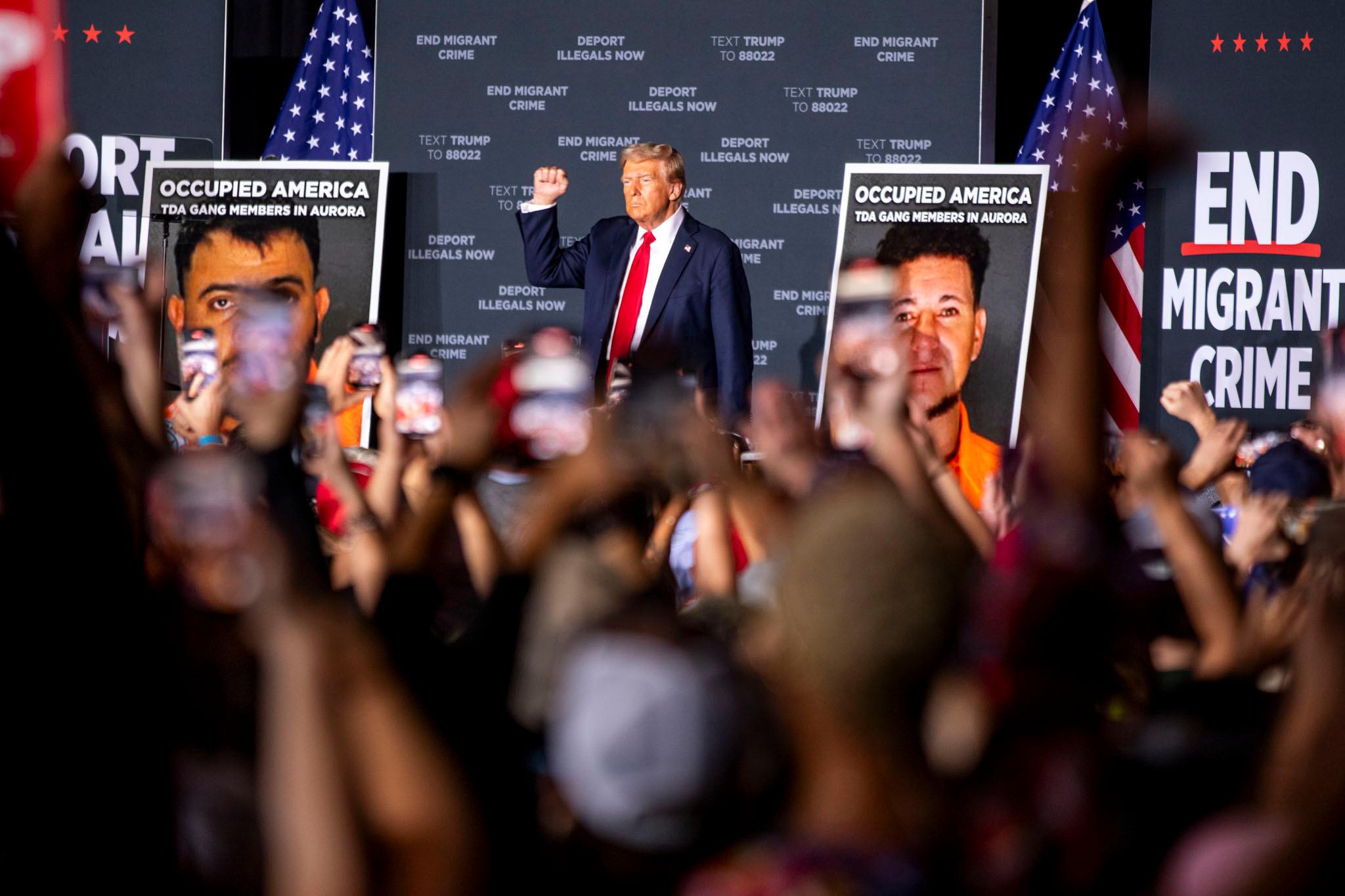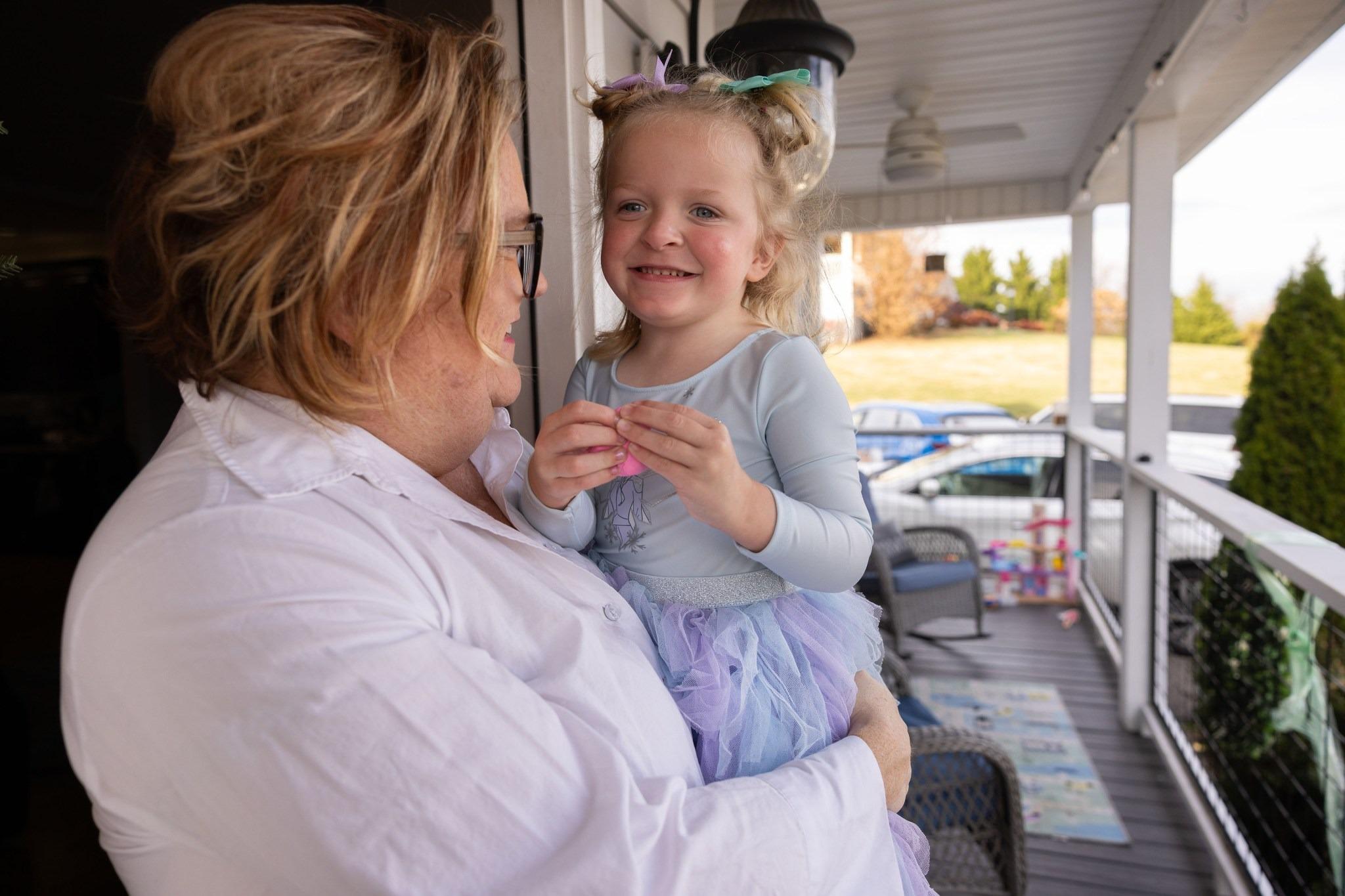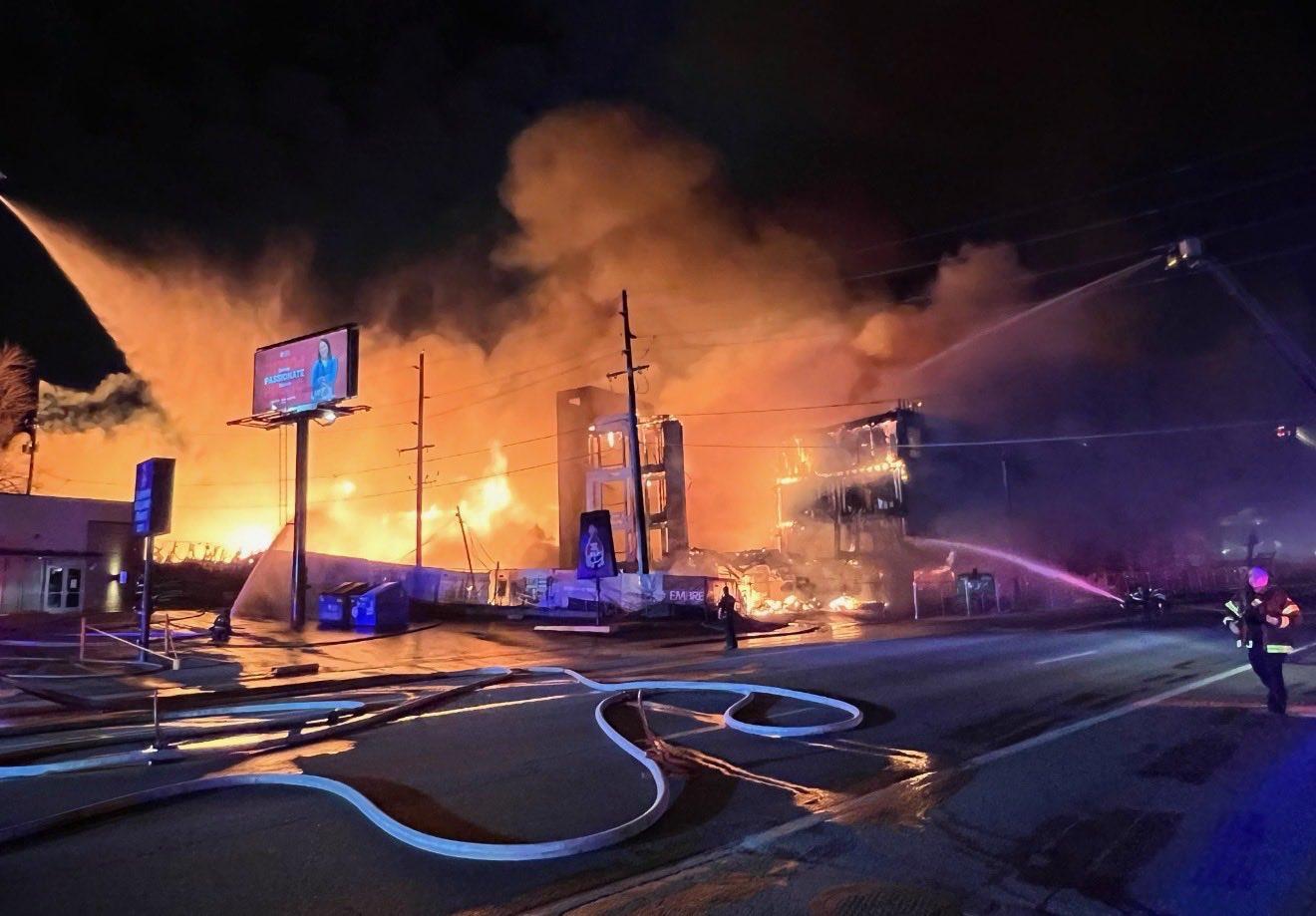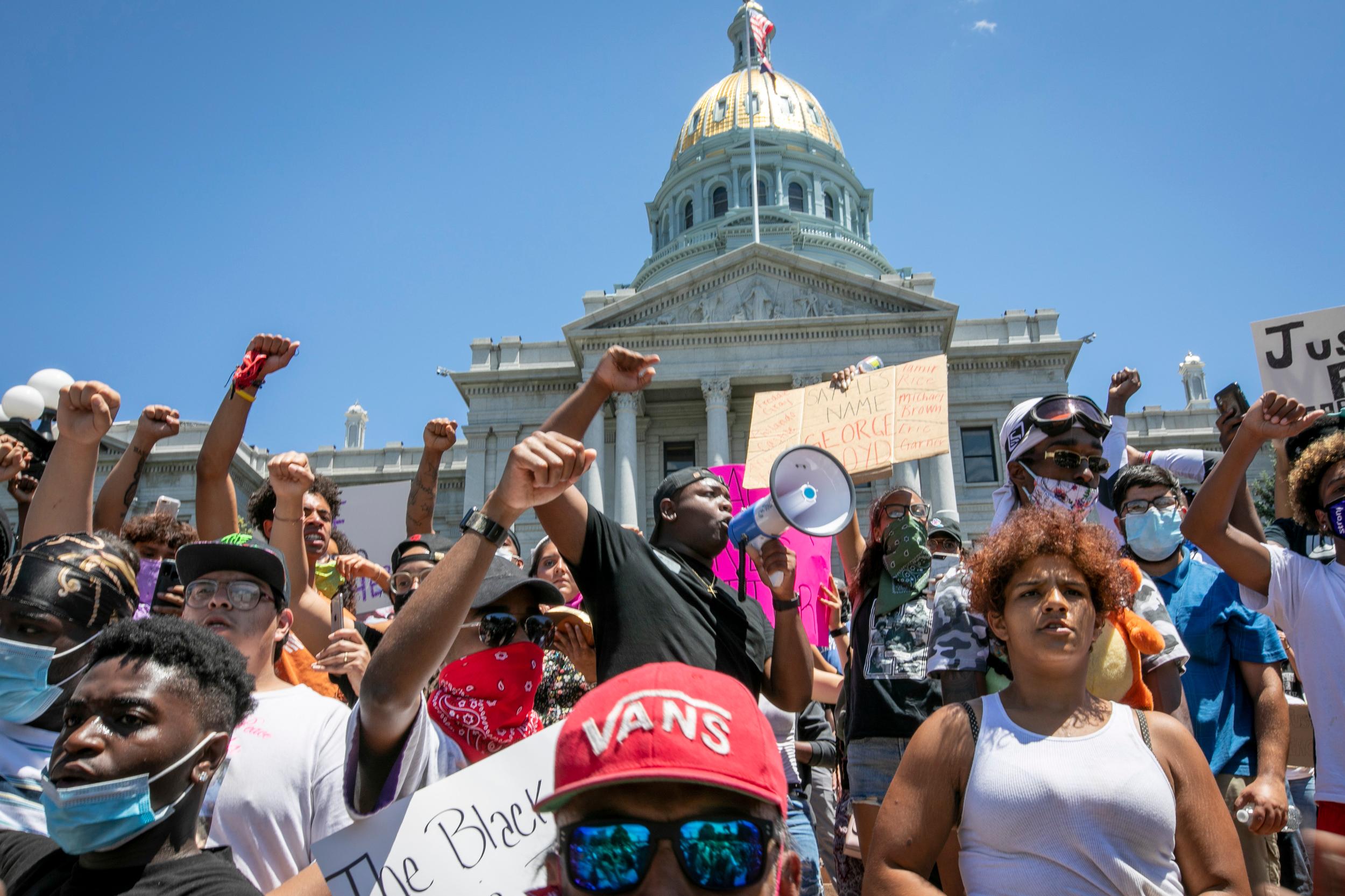
State lawmakers returned to work Monday in a state Capitol battered by four days of protests.
The building and surrounding monuments have been defaced with graffiti, and windows along the lowest floor were boarded up with plywood. Some windows on the second floor of the Capitol were also smashed with rocks. A state employee told legislative leaders that the offices of Gov. Jared Polis and his chief of staff both had broken windows.
Democratic state Sen. Kerry Donovan of Vail was among the roughly 200 people that helped clean up the surrounding area.
“We cannot let the destructive actions of a few distract from the problem of systematic racism,” Donovan said. “I’m committed to addressing the issues minorities face every day — fear and inequality. The building will be fine.”
Lawmakers in both chambers held a moment of silence for George Floyd, the Minneapolis man whose death in police custody has touched off national unrest.
Democratic state Sen. Rhonda Fields of Aurora asked her colleagues for leadership — not thoughts and prayers — on the issue of police violence against people of color. She said she’s tired of seeing people call law enforcement for help and have the situation end with a dead body.
“The injustice continues, time and time again. And I'm not seeing any change. The only change I'm seeing is someone has a cell phone and they record the action,” said Fields, who is one of the two African American women currently serving in the state Senate. “It seems sometimes the color of your skin is a threat to some people so they shut you down.”
The 21 members of the legislature's Democratic Black and Latino caucuses issued a joint statement condemning institutional racism.
“For generations, Black Americans are harassed and killed by racist police officers and vigilantes, and every year communities cry out and voice concerns about the unjust treatment of people of color,” the statement read. “When it comes to seeking justice, the motives of Black people are questioned, even during simple activities like taking a jog, watching TV in their own homes, or picking up trash around their front yard.”
The statement said the lack of accountability has had devastating impacts on black communities, “and continues to cast Black individuals as not worthy of justice, of full protection by the law, or of basic civil rights.”
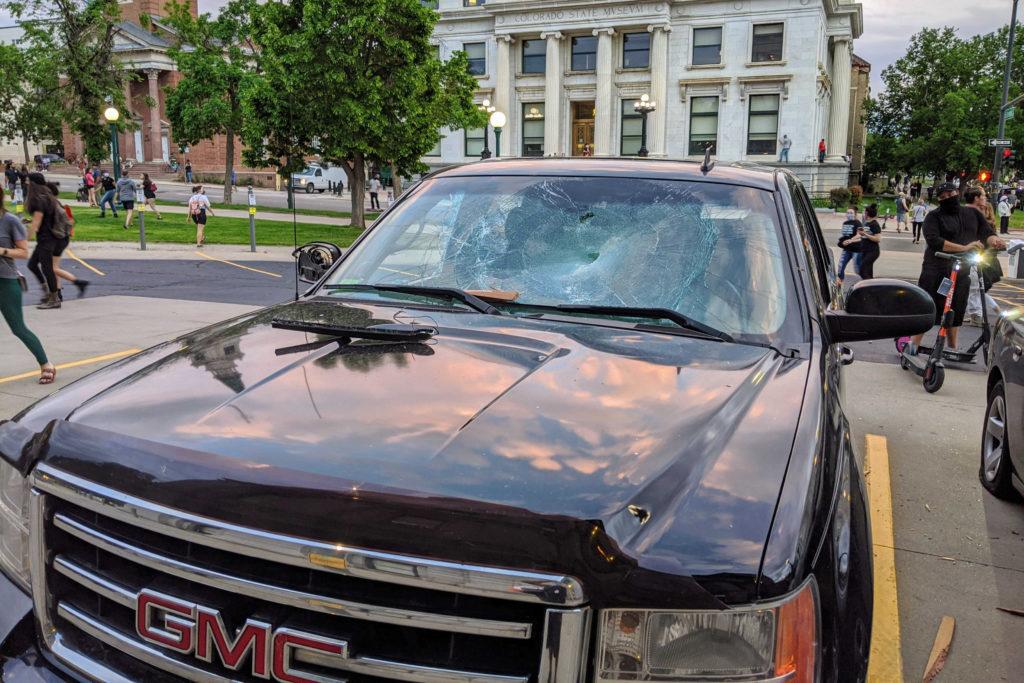
Lawmakers suspended their work on Friday and Saturday as protests surrounded the Capitol and became destructive at times. Democratic Senate President Leroy Garcia’s truck was damaged, as were windows, statues and the Armenian genocide memorial outside the building, and staff described massive amounts of graffiti on the Capitol itself. The total repair cost is still being assessed.
Republican state Sen. Jerry Sonnenberg of Sterling called the circumstances of George Floyd’s death “deplorable.” He also said a third-degree murder charge for Derek Chauvin, the white police officer who knelt on Floyd’s neck, killing him, was not severe enough. He asked why the bystanders and other police officers didn't do more to stop what happened.
“I don't care what industry we're in, there's always a bad apple or two,” Sonnenberg said.
But Sonnenberg said he doesn’t want all police officers to be vilified for the actions of a few.
“I want to make sure that we understand the policemen are our friends. The other night when the president of this chamber was escorted out of the chamber because his vehicle was being destroyed, it was done by a very solid and good state patrol that works hard to protect all of us,” Sonnenberg said. “There are good men and women in blue and we need to remember that.”
He said the protests have at times taken away from the underlying message.
“Thank you to all of those people that help make us safe against those thugs and looters,” said Sonnenberg, who also addressed Sen. Fields directly. “Senator, whatever I can do to be helpful to make sure that we change the way we do things in Colorado and across this country. I'm here for you.”
Others objected to Sonnenberg’s phrasing.
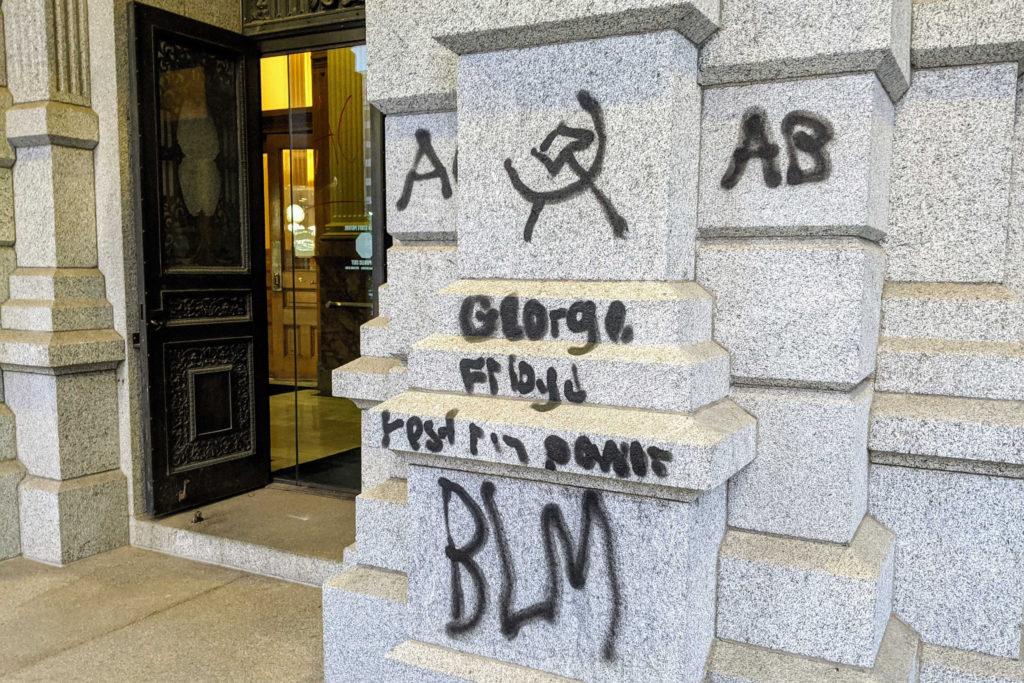
“I want us to be careful about the language we use,” said Democratic state Sen. Faith Winter of Westminster. “When we call police that incite violence on our black community ‘a few bad apples,’ and we call the people protesting in pain who have been told not to kneel, who have been told not to say ‘Black lives matter,’ who have been told repeatedly not to protest peacefully, and they get called ‘thugs.’ That is institutionalized racism.”
Lawmakers are wrapping up the legislative session that was already delayed by two months due to the coronavirus pandemic.
On Tuesday, the House is expected to debate the budget, which contains more than $3 billion in cuts to fill a looming pandemic-caused shortfall. They have 70 amendments to consider. It’s not clear if the protests will cut short or change that debate, which usually lasts late into the night. The goal was for the legislature to spend three weeks at the Capitol to finish remaining business as quickly as possible, given the health precautions they are taking because of coronavirus.
Republican Assistant Minority Leader Kevin Van Winkle said fear and uncertainty over COVID-19 has turned to anger at a police officer a thousand miles away.
“I was angry because he did not value life, he did not serve and protect and he did not have the eyes to see, or ears to hear what was happening right before him,” Van Winkle said. “And I’m very angry that George Floyd and his family have to pay the price for that.”
He said he’s also angry that people are using that situation to cause more violence and fear.
Democratic state Rep. James Coleman of Denver said he’s upset with law enforcement officers who abuse their privileges, and believes the reason things aren’t fixed is because people don’t know how to communicate with each other and people aren’t held accountable.
“We know the difference between protestors and rioters. We work in this building. We hate to pull up and see it damaged this way. Who wants to support people coming to damage what is ours?” Coleman said. “This is our city. This is our state.”
Coleman urged his colleagues to be more civil with each other in the final weeks of the session, and focus on policy, not personal differences.
“Let’s treat each other right,” he said.

